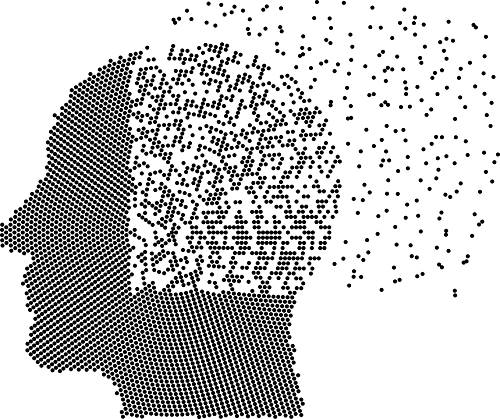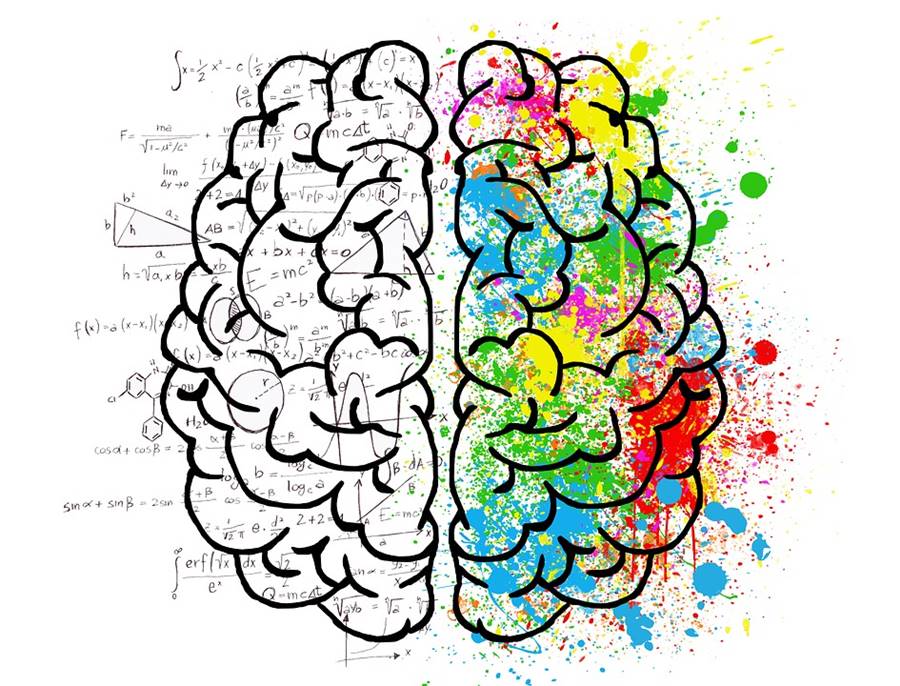Maintain Mental Fitness as you Age
Aging: How to Prevent Brain Decay
Fact Checked
×All the content published in our website is fact checked to validate its accuracy.
Visit our guidelines web page to learn more about our strict processes regarding how we review our content's sources: reliable and reputable journals, media websites, universities, colleges, organizations, and professionals.
Our articles are based on scientific evidence, and the references are included in its footnotes, which are clickable links to sound scientific papers.
First published: 30.Oct.2018
Overview
Aging entails the risk of memory decline, dementia, and cognitive impairment for most of our older adults.
Roughly 8.8% of those aged 65 or older in the United States suffer from dementia. That means 4 to 5 million people.
What can be done to ward off Alzheimer's disease? How can you preserve brain health, mental fitness, and cognitive abilities?
Is there evidence that physical exercise, meditation, stress management, or engaging in intellectual activities to stimulate the brain may help prevent dementia? Is it really a case of "use it or lose it"?
Today's article addresses those and other issues, and the scientific evidence behind them so that you can make the lifestyle changes necessary to live with a sound mind into your old age.
References and Further Reading
(1) Kenneth M. Langa, (2017). A Comparison of the Prevalence of Dementia in the United States in 2000 and 2012. JAMA Intern Med. 2017 Jan 1; 177(1): 51-58. doi: [10.1001/jamainternmed.2016.6807]
(2) Margaret Gatz, (2005). Educating the Brain to Avoid Dementia: Can Mental Exercise Prevent Alzheimer Disease?. PLoS Med. 2005 Jan; 2(1): e7. 2005 Jan 25. doi: [10.1371/journal.pmed.0020007]
(3) Douw L, Nieboer D, van Dijk BW, Stam CJ, Twisk JW, (2014). A healthy brain in a healthy body: brain network correlates of physical and mental fitness. PLoS One. 2014 Feb 3;9(2):e88202. doi: 10.1371/journal.pone.0088202. eCollection 2014
(4) Fernandes RM et., al (2018). The Effects of Moderate Physical Exercise on Adult Cognition: A Systematic Review. Front Physiol. 2018 Jun 8;9:667. doi: 10.3389/fphys.2018.00667. eCollection 2018
(5) Gregory J. Christie, et al., (2017). Do Lifestyle Activities Protect Against Cognitive Decline in Aging? A Review. Front Aging Neurosci. 2017; 9: 381. 2017 Nov 20. doi: [10.3389/fnagi.2017.00381]
(6) Myuri Ruthirakuhan et al., (2012). Use of Physical and Intellectual Activities and Socialization in the Management of Cognitive Decline of Aging and in Dementia: A Review. J Aging Res. 2012; 2012: 384875. 2012 Dec 31. doi: [10.1155/2012/384875]
(7) Kattenstroth J-C, Kalisch T, Holt S, Tegenthoff M, Dinse HR (2013). Six months of dance intervention enhances postural, sensorimotor, and cognitive performance in elderly without affecting cardio-respiratory functions. Front Aging Neurosci 5: 5
(8) Katrin Weigmann (2014). Why exercise is good for your brain - A closer look at the underlying mechanisms suggests that some sports, especially combined with mental activity, may be more effective than others. EMBO reports (2014) 15, 745-748 DOI 10.15252/embr.201439051
(9) Helena Hörder et al., (2018). Midlife cardiovascular fitness and dementia A 44-year longitudinal population study in women. Neurology. 2018 Apr 10; 90(15): e1298-e1305. doi: [10.1212/WNL.0000000000005290]
(10) Gerd Kempermann, Hongjun Song and Fred H. Gage, (2015). Neurogenesis in the Adult Hippocampus. Cold Spring Harb Perspect Biol September 2015;7:a018812, doi: 10.1101/cshperspect.a018812
(11) Frederick W. Unverzagt, et al., (2012). ACTIVE Cognitive Training and Rates of Incident Dementia. J Int Neuropsychol Soc. 2012 Jul; 18(4): 669-677. 2012 Mar 9. doi: [10.1017/S1355617711001470]
(12) Verghese J, Cuiling W, Katz MJ, Sanders A, Lipton RB (2009). Leisure activities and risk of vascular cognitive impairment in older adults. J Geriatr Psychiatry Neurol 22: 110-118
(13) Michelle E. Kelly et al., (2017). The impact of social activities, social networks, social support and social relationships on the cognitive functioning of healthy older adults: a systematic review. Syst Rev. 2017; 6: 259. 2017 Dec 19. doi: [10.1186/s13643-017-0632-2]
(14) Albanese E. et al., (2017). Body mass index in midlife and dementia: Systematic review and meta-regression analysis of 589,649 men and women followed in longitudinal studies. Alzheimer's Dement (Amst). 2017 Jun 20;8:165-178. doi: 10.1016/j.dadm.2017.05.007. eCollection 2017
(15) Loughrey DG, et al., (2017). The Impact of the Mediterranean Diet on the Cognitive Functioning of Healthy Older Adults: A Systematic Review and Meta-Analysis. Adv Nutr. 2017 Jul 14;8(4):571-586. doi: 10.3945/an.117.015495. Print 2017 Jul
(16) Meyer AM, Podolski N, Pickert L, Polidori MC., (2020). Pr¨ventive Geriatrie kognitiven Abbau verhindern [Strategies to prevent age-related cognitive decline]. Dtsch Med Wochenschr. 2020 Feb;145(3):146-150. German. doi: 10.1055/a-0955-9587. Epub 2020 Feb 4. PMID: 32018286
(17) O'Donovan G, Petermann-Rocha F, Ferrari G, et al, (2024). . British Journal of Sports Medicine Published Online First: 29 October 2024. doi: 10.1136/bjsports-2024-108460
About this Article
Maintain Mental Fitness as you Age, A. Whittall
©2024 Fit-and-Well.com. First Published: 30.Oct.2018. Updated. Nov. 01 2024. Update scheduled for 01.Nov.2027. https://www.fit-and-well.com/wellness/mental-fitness.html
Tags: dementia, exercise, meditation, Mediterranean Diet, aging, Alzheimer's disease.




